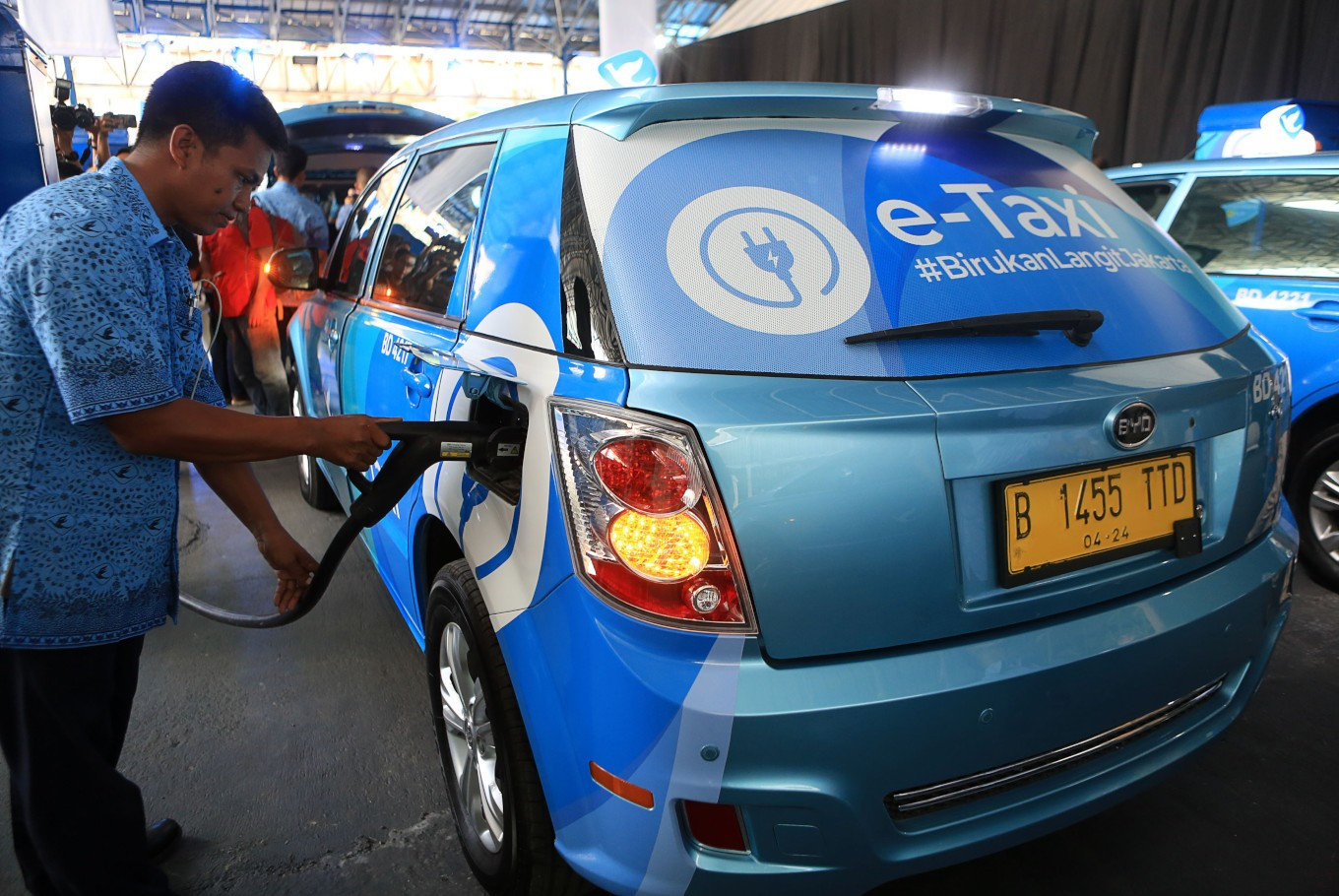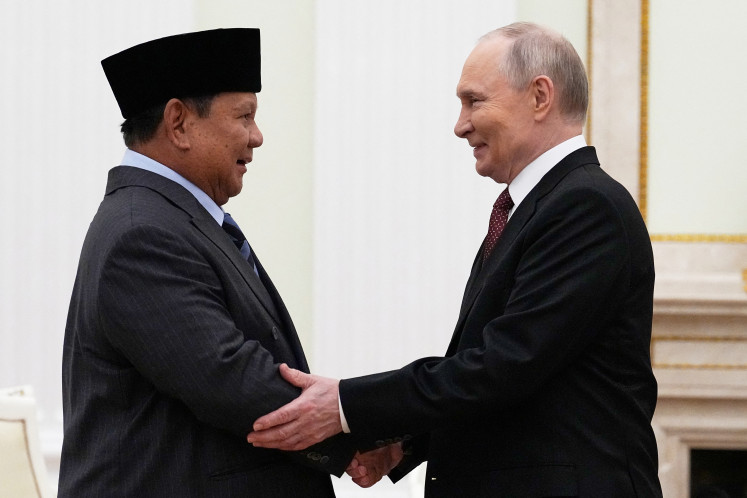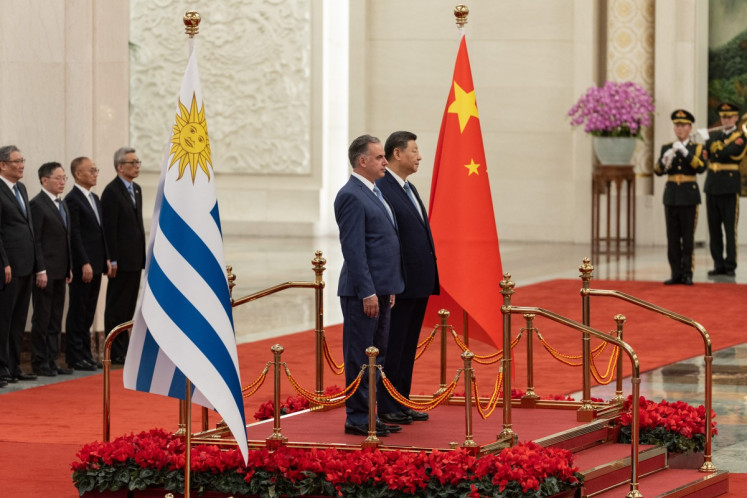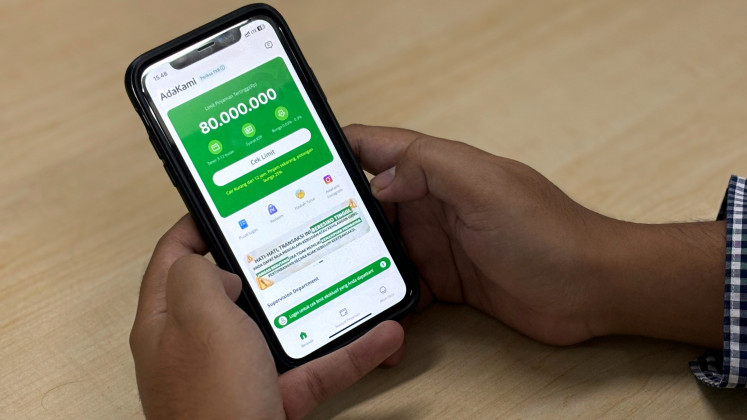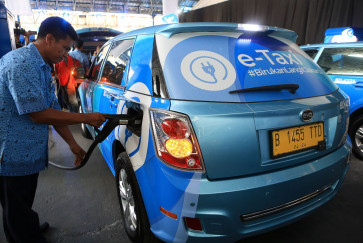Popular Reads
Top Results
Can't find what you're looking for?
View all search resultsPopular Reads
Top Results
Can't find what you're looking for?
View all search resultsAnalysis: RI’s EV ambition jolted as LG backs out of battery investments
Change text size
Gift Premium Articles
to Anyone
S
outh Korea’s LG Energy Solution (LGES) has officially withdrawn from a multibillion-dollar battery supply chain investment plan in Indonesia, casting uncertainty over the country’s ambitions to become a global electric vehicle (EV) hub. The decision came amid a sluggish domestic EV market in Indonesia, which has led the company to reassess its investment priorities and scale back on expansion plans, prompting Indonesian authorities to seek alternative partners to keep the strategic initiative on track.
The LG-led South Korean consortium—which included LG Chem, LX International Corp, and other affiliated companies—had signed a high-profile agreement with the Indonesian government in late 2020 to develop a fully integrated EV battery ecosystem. The project, valued at approximately Rp 129 trillion (US$7.7 billion), was intended to cover the entire value chain from nickel mining to battery cell production.
Initially hailed as a breakthrough in Indonesia’s push to lead the global energy transition, the consortium’s withdrawal marks a significant setback. The decision followed consultations with the Indonesian government and comes amid global signs of a plateau in EV demand growth, with LG interpreting the current environment as a temporary market adjustment.
The project had aimed to establish a complete supply chain—including raw material sourcing, precursor and cathode production, and battery cell manufacturing. However, critical gaps remained in Indonesia’s downstream capabilities, especially in anode and cathode processing—most notably in Sulawesi and North Maluku, where much of the upstream nickel mining is located but downstream industrial development lags behind. Addressing this disparity through targeted investment is crucial for establishing a complete battery ecosystem.
Experts point to regulatory inconsistencies as a contributing factor. Indonesia’s EV incentives apply broadly across battery chemistries, including those using lithium iron phosphate (LFP), not just nickel-based batteries—a lack of focus that may have deterred deeper investment in the nickel ecosystem.
Despite the withdrawal, LG confirmed it remains committed to other ongoing projects in Indonesia. This includes the Hyundai LG Indonesia Green Power (HLI Green Power) battery factory, a joint venture with Hyundai Motor Group. The facility, inaugurated last year, is Indonesia’s first battery cell production plant and represents a US$1.1 billion investment across a 330,000-square-meter site.
President Prabowo Subianto urged calm, stressing that LG’s exit does not undermine Indonesia’s long-term investment outlook. “Indonesia is vast and full of opportunity,” he said. “There will be other investors ready to step in.” Aneka Tambang (Antam), the state-owned mining company that was slated to partner with LGES for nickel extraction, echoed this sentiment, affirming its commitment to securing new international partners to supply nickel for battery production.

